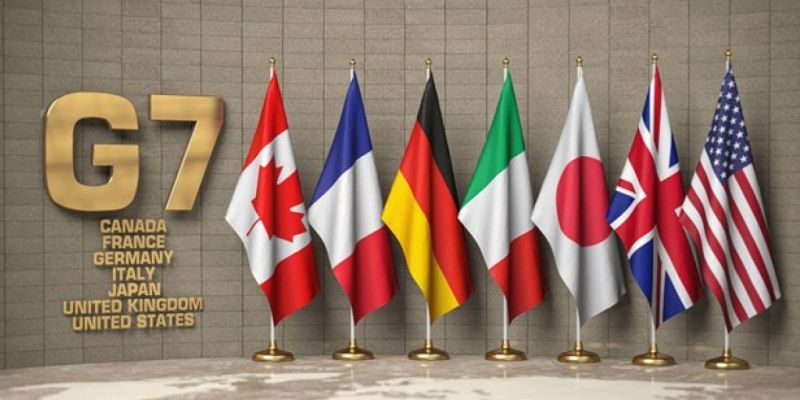roup of Seven (G7) leaders on Saturday called on Sri Lanka’s private creditors to ensure comparability of treatment principle as the country pursues restructuring of its external debt.
In a statement, following their annual summit in Hiroshima, Japan the G7 leaders stressed the “importance of private creditors providing debt treatments on terms at least as favourable to ensure fair burden sharing in line with the comparability of treatment principle.”
It also welcomed “the launch of the creditors’ meeting for Sri Lanka under the three co-chairs, France, India, and Japan, and look forward to a swift resolution as a successful model for future multilateral efforts to address middle income countries (MICs’) debt issues.
The G7 leaders said they remain concerned that serious challenges to debt sustainability are undermining the progress towards the SDGs and low-and middle-income countries are disproportionately affected by Russia’s war of aggression against Ukraine and wider global challenges.
“We reiterate the urgency of addressing debt vulnerabilities in these countries and fully support the G20’s effort to improve the implementation of the Common Framework for Debt Treatments beyond the Debt Service Suspension Initiative (DSSI) in a predictable, timely, orderly and coordinated manner, providing clarity to participants. We welcome the recent approval by the IMF board of a program for Ghana. Beyond the Common Framework, debt vulnerabilities in middle income countries (MICs) should be addressed by multilateral coordination,” the statement said.
“We welcome the development of Climate Resilient Debt Clauses (CRDC) to enhance the safety net for borrowers facing the impacts of climate change. We welcome work by our finance ministers on this topic and encourage more creditors to offer CRDC for loan agreements. In order to enhance debt data accuracy and transparency, we invite all official bilateral creditors to join the data sharing exercise for debt data reconciliation, including through further advancing the G20’s initiative in the area of debt data accuracy,” G7 statement added.
As per Finance Ministry sources, Sri Lanka’s ISBs account for a significant 66% share or $ 20.3 billion of commercial FX denominated public debt, excluding ECA-backed debt and SOEs’ payables and including arrears, as at end-2022. Outstanding amount to bonded private creditors was $ 14.5 billion.
ISBs holders have organised around two committees. ISBs international bondholders have formed an ad-hoc creditor committee and this group is said to represent more than 55% of ISBs non-domestic holdings. The group is advised by Rothschild and White and Case.
Separately a consortium of local private banks holding ISBs has formed another group which has reported holdings in around $ 1.5 billion across all series of ISBs (around 12% of outstanding ISBs). The group is advised by Baker and Mckenzie.
FT

